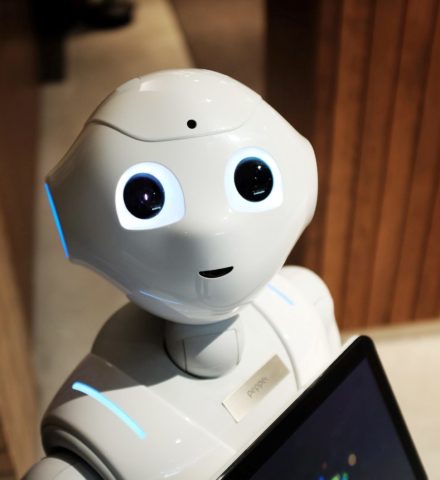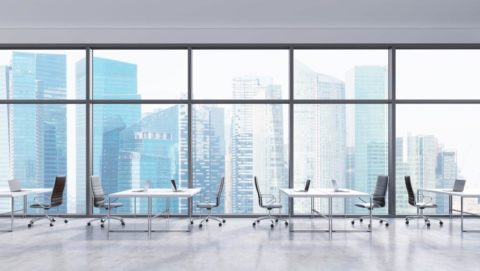Top Story
Investor Perspective from Singapore: Transactions Down while Logistics and Data Centers in Demand
[VIDEO] 2020 ULI Singapore Annual Conference LiveOnline panel discussion
20 May 2020
Yong Shu Chiang
With the world gripped by a pandemic, these are unprecedented and challenging times. But the show must go on, ULI Singapore and its member stakeholders agreed, as it held its third annual conference, the 2020 ULI Singapore Conference LiveOnline, via webcast on 30 April.
With the world gripped by a pandemic, these are unprecedented and challenging times. But the show must go on, ULI Singapore and its member stakeholders agreed, as it held its third annual conference, the 2020 ULI Singapore Conference LiveOnline, via webcast on 30 April.
Starting at 2:00 p.m. Singapore time, the event ran for more than three hours and hosted more than 480 registered delegates from the real estate industry, up from 230 delegates in 2019 and 200 in 2018. Of the participants, who collectively represented 15 countries, about 35 per cent logged on from outside Singapore.
Throughout the proceedings, delegates could participate in polls and pose their own questions through an online platform on the webcast page.
ULI Global Governing Trustee Scott Dunn, who was the emcee for the virtual conference, said in his opening remarks that times like these called for reflection.
“Sustaining thriving communities is really at the heart of the ULI mission,” which has never been more relevant, said Dunn, who is also vice president for Southeast Asia at AECOM. “It is important to stop and reflect upon our role in the world. Through our members, ULI has been a great forum of real estate best practices and impartial information.”
In her welcome address, ULI Singapore chair Ong Choon Fah, CEO of Edmund Tie & Company, called the current period for industry players an “opportunity to reflect, restructure, and realise that change is the only constant. Adapt we must and the show must go on [in spite of] this pandemic.
“This crisis is a reminder of how interconnected we all are in this world. As a global nonprofit, ULI is well placed to enable the sharing of global best practices to find more solutions to the challenges we face and to forge ahead to build sustainable and thriving communities.”
Just as ULI Singapore adhered to safe-distancing regulations by hosting this conference in a virtual space, through the adoption of technological platforms that enabled presentations and panel discussions without having any speakers in physical proximity, several of them shared how they and their businesses have had to adapt and pivot in trying circumstances.
Throughout the afternoon, various industry practitioners shared how the pandemic has accelerated the use of technology to overcome the distance and isolation enforced by lockdowns imposed to varying degrees across the globe.
Technology has enabled businesses to continue their activities, such as being able to work and hold meetings outside a physical office, or host virtual tours for clients.
During the live/work panel, which focused on the blurring of boundaries between working and living spaces, Raffles Quay Asset Management CEO Ben Robinson said that “the ability of available technology platforms to facilitate remote working has been tested and proven to be more than capable.”
He added that companies have also been able to observe the “positive and negative impacts” on productivity morale and mental health, and that it is important to focus on that for a moment, “in light of how we then go and have a look at how office space is to be used in the future.”

Photo By Photo by Alex Knight on Unsplash
In the hospitality sector, robots can deliver services to in-house guests without the need for close human contact.
For some in the hospitality sector, ensuring business continuity has hinged upon setting up hitherto nonexistent e-commerce platforms for hotel food-and-beverage (F&B) outlets and using robots to deliver services to in-house guests without the need for close human contact.
During the play panel centred on the hospitality and F&B sectors, Tan Shin Hui, executive director of Park Hotel Group, said that the COVID-19 crisis validated the desirability of contactless services. The group’s flagship hotel, Grand Park City Hall, recently tried out a keyless check-in system, using facial recognition technology, that could reduce check-in times by 70 per cent.
“When it comes to contactless delivery of services, staff need to be retrained,” she said. “There is a learning curve and there will need to be investment in reskilling, but I think this is a trend that will be coming to the fore a lot more in the next year or so.”
However, technology is not a panacea. Other panellists noted that a more impersonal approach might not work for all segments of hospitality. And from an investment or sales perspective, technological solutions could help but not completely replace in-person activities.
Rushabh Desai, CEO for the Asia Pacific region for Allianz Real Estate, said during the capital markets session that deal-making had slowed with the temporary halt in nonessential international travel but that deals were not impossible in the current climate. Still, concessions had to be made.
“I can’t possibly [travel] to see an asset at this point in time. We’ve got to rely on our partners and consultants to make sure they do due diligence on our account,” he said.
Fellow panellist Terence Tang, Colliers International’s managing director for capital markets in Asia, added that deals were being held back due in part to the increased costs of maintaining assets and the difficulty in asset valuations with rebalancing of risk premiums to come.
As part of the closing discussion, Edmund Tie’s Ong and City Developments Group chief investment officer Frank Khoo talked about using virtual tours, while restricted by social distancing, to showcase their properties to prospective buyers.
“Property is a big-ticket item that people don’t traditionally like to buy online. We try to make the virtual tours as realistic as possible, but [post-COVID] people are not buying based on simply going on these tours,” said Khoo.
Following up, Ong said that virtual galleries of properties may not, by themselves, help close deals, but they can help pique the interest of would-be buyers ahead of the end of the lockdown and possible resumption of normal sales activities.
Further discussion revolved around density issues, should social distancing be required for longer than expected, which could cause a rethink of not just the office as we know it, but of the restaurants and bars on the F&B landscape, as well as education and innovation spaces.
Ashish Manchharam, founder and CEO of 8M Real Estate, said during the play discussion that restaurants may need to consider taking on a smaller footprint, if close-quarters seating is no longer permitted and if the business model needs to pivot toward another based more on takeaway and delivery services.
Similar sentiments were shared across other discussions about whether offices and living spaces could also require less space if a virtual community, or a suite of virtual amenities, could be facilitated by various online and app-based platforms.
“Many buildings may have to be repurposed post-pandemic,” said Leong Teng Wui, chief development officer of the Ascott Limited and head of projects and technical services for CapitaLand. “We may see underutilised spaces in grade A office developments, with higher vacancies due to new work patterns in future.”
However, Christina Tan, CEO of Keppel Capital, disagreed that the prototypical office would be decimated. Speaking on the capital markets panel, she said, “My personal view is that it will not be. It could be a situation where people might actually [seek out] grade A office buildings instead. Because this is a time where you know that employees’ well-being is very important.”
The timely topics of sustainability, flexibility, and resilience featured prominently as the co-chairs of the upcoming ULI Singapore Sustainability Product Council, which aims to complement the work of the ULI Centre for Sustainability and Economic Performance, shared the vision and mission of the council.
Esther An, chief sustainability officer for City Developments Limited, said that the pandemic was “a stark reminder that adopting responsible environmental, social, and governance [ESG] practices has become ever more essential to ensure corporate sustainability,” particularly in the face of a sudden disruption that crops up with little warning.
Her fellow co-chair, Nina Yang, CEO of SJ CityGlobal, said the product council, which will be launched later this year, aims to accelerate the adoption and implementation of sustainability, and offer a dynamic platform for knowledge sharing and the exchange of best practices that mitigate and adapt to climate- and sustainability-related challenges.
“We will cover case studies for sustainable buildings, districts, and infrastructure that will shed light on the nexus between natural systems, built environment, and resource efficiency vis-à-vis the well-being and health of users,” she said.

We may see underutilised spaces in grade A office developments, with higher vacancies due to new work patterns in future.
During the learn segment of the programme, the president of the Singapore Institute of Technology, Professor Tan Thiam Soon, shared the thinking behind the university’s brand-new campus, which will be co-located with a JTC business park and integrated with natural green spaces and surrounding residential areas as part of the upcoming Punggol Digital District.
“It’s an opportunity to reimagine what a university learning environment of the future will be like. The pandemic is posing a lot of questions we will need to address, such as if the whole university, in totality, can be used for learning and experimentation,” he said.
Tan added that apart from taking new approaches to facilitating experimentation with industry partners, the university would question the role of traditional core spaces, such as the library. What is the library of the future, he asked, if it has facial recognition software, and would it still serve a purpose if its volumes and resources are all cloud-based?
Toward the end of the conference programme, ULI Singapore chair Ong took a philosophical view of where the real estate community finds itself at the moment.
“The Chinese term for crisis is wei ji, which is danger and opportunity. So in every crisis, there are opportunities. And I think also there’s a season for everything. Whatever we are in now, it will also come to pass,” she said.
“So I think it’s important that we remain positive, to really search for the opportunities and how we are going to re-create ourselves, with that creative disruption that is happening, so that we position ourselves for the future.”
Don’t have an account? Sign up for a ULI guest account.